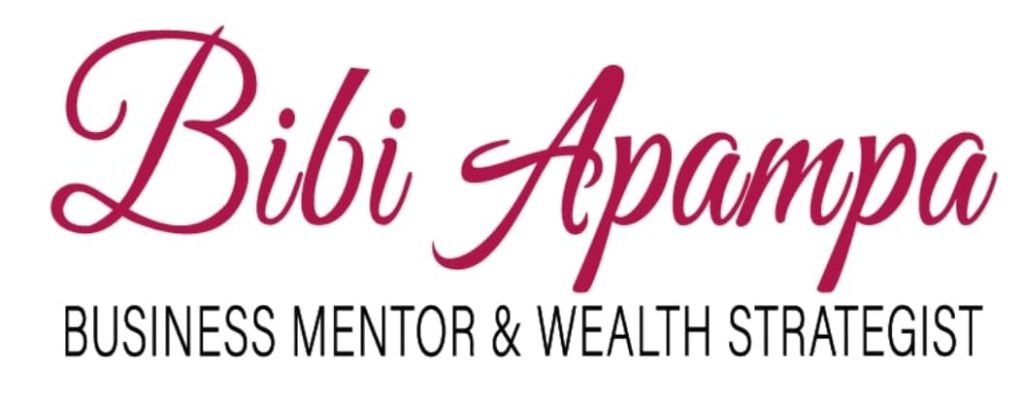In the realm of retirement planning in Nigeria, two essential components stand out: pension and gratuity. These financial pillars serve as the backbone of post-work life, each offering unique benefits and considerations. Understanding the difference between pension and gratuity in Nigeria is crucial for retirees as they navigate the intricacies of planning their financial future.
In our previous posts, we’ve looked at:
Types of retirement in Nigeria;
The Basics of Retirement Planning In Nigeria
Today, let’s delve into the nuances of pension and gratuity in Nigeria, exploring their significance and the distinctions that shape retirees’ financial landscapes. To avoid any confusion, let’s start by providing clear definitions for both pension and gratuity.
What is Pension?
In Nigeria, pension and gratuity are vital components of retirement planning. Pension serves as a reliable source of income post-retirement, ensuring a steady financial stream. Governed by the Pension Reform Act 2014 (PRA), which establishes a contributory pension scheme for all employment in Nigeria, it guarantees retirement benefits to covered employees.
Section 3 (1) of the PRA 2014 specifically establishes this contributory pension scheme, applying to employment across various sectors including the public service, federal capital territory, states, local governments, and the private sector. The PRA affirms the right of every employee covered under it to receive a pension.
Under the PRA, both employers and employees contribute minimum percentages of the employee’s salary to the scheme monthly. The employer’s minimum contribution is 10%, while the employee’s is 8%. These contributions are directed into a Retirement Savings Account (RSA), where they are invested based on the Multi-Fund Structure.
The Multi-Fund Structure divides the RSA Fund into six distinct Funds (Fund I to Fund VI), aiming to align the age and risk profile of RSA holders. When an individual retires, their pension is paid out from this account.
Overall, the PRA ensures that every employee covered under it has the right to receive a pension, providing a structured and secure approach to retirement planning in Nigeria.
What is Gratuity?
In Nigeria, gratuity is a lump sum payment made by an employer to an employee upon retirement or resignation as a gesture of appreciation for their service. Unlike a pension, which is paid regularly, gratuity is a one-time payment.
To obtain gratuity in Nigeria, follow these steps:
1. Grasp Employment Laws
Familiarize yourself with labor laws and regulations regarding gratuity payment, eligibility criteria, and other relevant details.
2. Validate Eligibility
Ensure you meet the requirements for gratuity. Typically, it’s paid to employees who have completed a minimum number of years of service, usually 5 to 10 years depending on the organization’s policy.
3. Inform Your Employer
Inform your employer in advance of your intention to retire or resign, following company policies or labor laws regarding notice periods.
4. Complete Necessary Documentation
Obtain and fill out necessary forms provided by your employer or HR department, including a retirement or resignation letter and an application for gratuity.
5. Present Documents
Provide the completed forms and any supporting documents requested by your employer, such as identification documents, employment contract, and proof of service.
6. Monitor Progress
Regularly contact your employer’s HR department to track the progress of your gratuity application and inquire about any additional steps required.
7. Receive Payment:
Once approved and processed, your employer will arrange for the payment of your gratuity, either as a lump sum or in installments, according to company policy.
Remember, the specific process and requirements for obtaining gratuity may vary depending on your employer, industry, and applicable labor laws. Consult your employer’s policies or seek legal advice for guidance tailored to your situation.
How is Pension and Gratuity Calculated in Nigeria?
Calculating your retirement treasure chest involves a bit of arithmetic magic. For pension, factors like years of service, average salary, and contribution rate come into play. Meanwhile, gratuity dances to its own tune, often tied to the sweet melody of your final salary.
In Nigeria, gratuity is calculated using a standardized formula which factors in the employee’s final basic salary, length of service, and the predetermined gratuity rate. The formula is as follows:
Gratuity = (Basic Salary * Years of Service * Gratuity Rate) / 26
In this equation:
- Basic Salary represents the employee’s last monthly basic salary prior to retirement or termination.
- Years of Service indicates the total number of years or completed months the employee worked for the organization.
- Gratuity Rate is a fixed percentage established by the employer or government regulations. In Nigeria, the standard gratuity rate is set at 300%.
Using the formula:
Gratuity = (100,000 * 10 * 300%) / 26
Gratuity = (100,000 * 10 * 3) / 26
Gratuity = (3,000,000) / 26
Gratuity ≈ 115,384.62 NGN
So, the calculated gratuity for this employee would be approximately 115,384.62 NGN.
Now that we’ve covered what pension and gratuity are and how they are calculated, let’s dissect the dynamic duo.
Difference Between Pension and Gratuity in Nigeria
1. Payment Structure and Duration
– Pension provides a regular and consistent income stream, distributed monthly, ensuring financial stability throughout the retiree’s lifetime.
– Gratuity, in contrast, offers a one-time lump sum payment, serving as a grand finale or acknowledgment for the years of service. However, this lump sum may not sustain the retiree as long as a pension would.
2. Funding Approach
– Pension involves a collective effort, with both the employee and employer contributing to the retirement fund. It represents a shared responsibility in building financial security for the retiree.
– Gratuity, on the other hand, is a solo performance funded entirely by the employer. It is a farewell gift or gesture, acknowledging the employee’s dedicated service.
3. Tax Implications
– Pension payments are typically subject to income tax. This means that retirees receiving a pension will need to pay taxes on their monthly income.
– Gratuity payments, in contrast, are not generally subject to income tax. The lump sum received as gratuity is exempt from this taxation, providing a potential financial advantage for the retiree.
4. Regulatory Framework
– Pension benefits are often governed by pension laws, which outline the rules and regulations regarding the management and distribution of pension funds.
– Gratuity benefits, on the other hand, fall under labor laws, which dictate the terms and conditions for the payment of gratuities. The regulatory framework for pension and gratuity may vary, reflecting the distinct nature of these benefits.
5. Financial Flexibility
– Pension offers a structured and predictable financial arrangement, with monthly payments. This structure may limit immediate financial flexibility but ensures a steady income stream.
– Gratuity provides a lump sum that retirees can use flexibly. This allows individuals to make significant one-time investments or address immediate financial needs, offering a different kind of financial flexibility compared to a pension.
Conclusion
In summary, pension and gratuity differ in their payment structure, funding approach, tax implications, regulatory frameworks, and the financial flexibility they afford to retirees in Nigeria.
As our exploration of pension and gratuity in Nigeria concludes, remember: knowledge is key to orchestrating your retirement symphony. Armed with insights, you can confidently step into the next chapter of life, knowing that a financially harmonious encore awaits.
Whether you’re nearing retirement or just starting your career, these insights will undoubtedly strike a chord. If you’re ready for a one-to-one chat to find out what’s enough for your retirement and ensure your retirement melody hits all the right notes, book a 1:1 Future Ready strategy session with Bibi Apampa today and embark on a personalized path toward a secure and fulfilling retirement.



